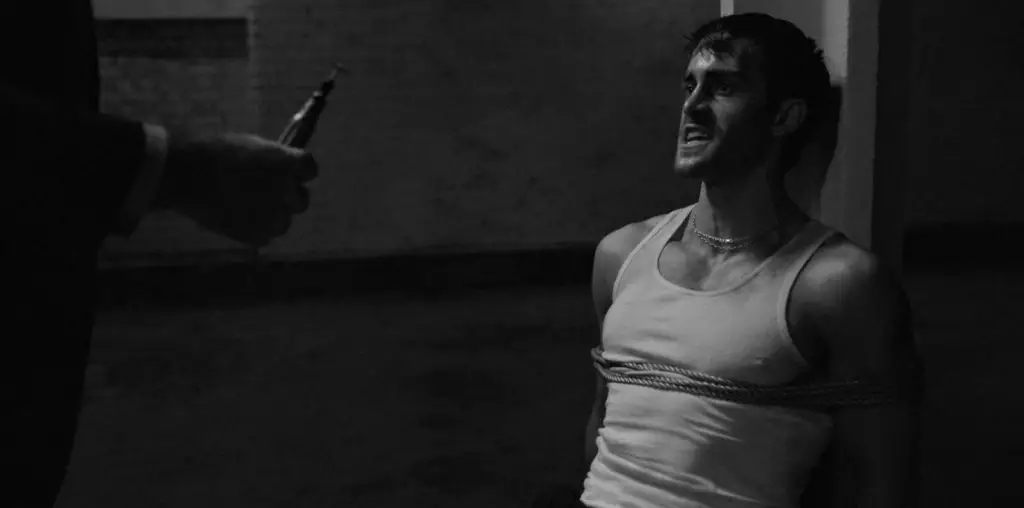
From the introduction former mayor Jim Melvin offers, you’d think Greensboro is a picture-perfect white-picket fence sort of town full of peace, love and most likely a McDonald’s or two. And, for the most part, the North Carolina town probably is. But like many success stories, there are some skeletons haunting the city’s streets that have become the focus for Andy B. Coon’s independent documentary “Greensboro’s Child.”
In 1986 a then 17-year old Kwame Cannon was convicted to two consecutive life sentences. So you’d think he’s some sort of murderer or rapist, right? Try six counts of burglary, the type where you break into a house without a weapon and steal some jewelry, stereos or other pawn shop-worthy items. Nobody was ever in any danger of being hurt and this was after a plea bargain. To this day Kwame remains in jail.
Now jump back into the Delorian and head back to November, 1979. A protest is about to begin in Greensboro, with people voicing their disdain towards the Ku Klux Klan. It begins peacefully enough until the Klan starts to drive slowly by the crowd. Fists pound on hoods. People yell. People holler. Shots are fired. In less than 90 seconds several protestors are on the ground with bullets in their bodies. Five died. Although they knew of the protest, no police were present. When they finally did arrive, they arrested the Klan members as well as several protestors, including some of the most vocal leaders Nelson Johnson and Willena Cannon, Kwame’s mother. Kwame himself was there as a 10-year-old boy. He was a simple part of the backdrop, there in the name of free speech (and probably a little egging on from his mother).
In light of the harshness of Kwame’s punishment, questions have arisen as to whether he is paying for the past. His mother was a well-known political activist, ready to speak her mind and kick up a fuss if need be. Many are now wondering if Kwame and his severe sentence is part retribution, part conspiracy, part long-time racial tension.
Composed mainly of interviews with Kwame, Willena and a few others with vested interests and a history with the case, “Greensboro’s Child” begins simple enough as though it were an in-depth news report. Events are recounted with a stationary camera capturing the comments. Although the stories themselves are equal parts tragic and disgusting, the static look becomes a little tiresome. But then director-writer-producer Koon pulls out his trump card: a video from the shooting itself. Seeing the shooting unfold drew me back into the film immediately. Call it a change of scenery, call it an ambulance-chasing mentality, call it grim, but this is where the film comes together by connecting the event to the chain reaction of injustice that continues on to this day.
Equally scary is the comments of ex-Greensboro mayor Jim Melvin. While his present take on the city might be accurate, the way he describes the 1979 massacre is as though he see it as the city’s finest moment. Melvin is a nice enough sounding guy, but when you interpret his pleasant demeanor and the words he speaks, his misguided ideas become more evident.
I was left wondering whether there is something against Kwame’s character that is keeping him in jail because the way the interviews are conducted, the opinions, other than a stupid Melvin throwaway comment or two, are one sided. Not to dig dirt on Kwame or his case, but I would have liked to have heard from a prison guard or anyone who could make an objective view of his character. This would not only provided a balanced point of view on the argument, but it might have made Kwame’s case even stronger if he really is a good person who made a couple of mistakes a long time ago.
With “Greensboro’s Child,” Coon has unearthed a disturbing part of America’s past and present. He’s gathered some strong interviews, but caps it off with some of the most frightening archive footage. The injustice of Kwame’s sentence is a story that has taken a university film student’s passion to be told. Now if Coon’s solid debut can get some attention, Kwame might get some too.

